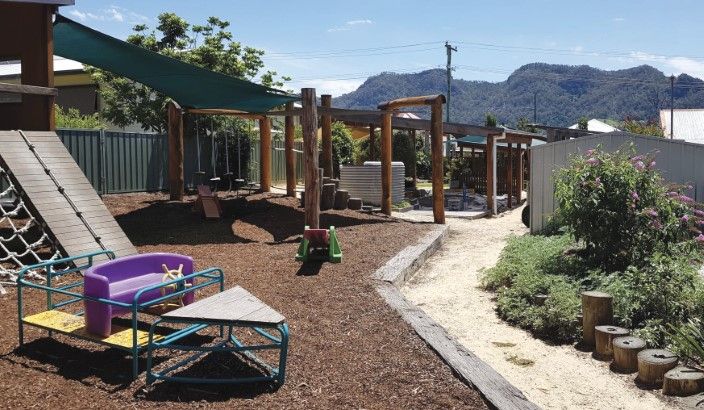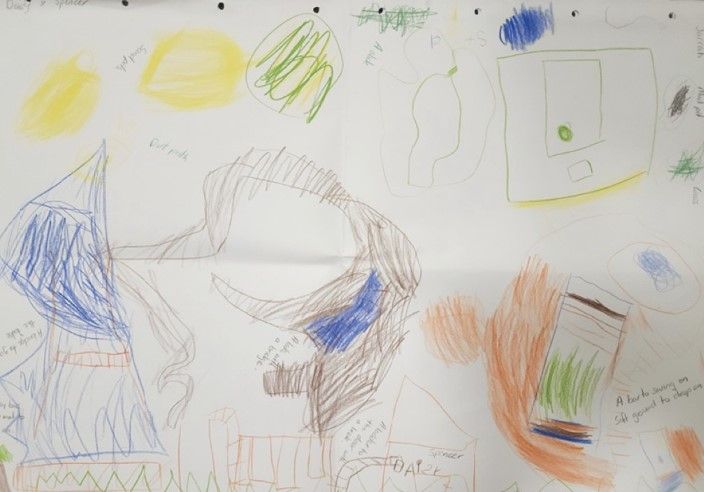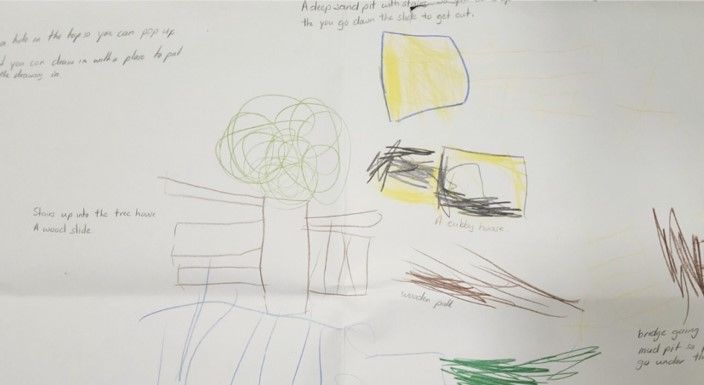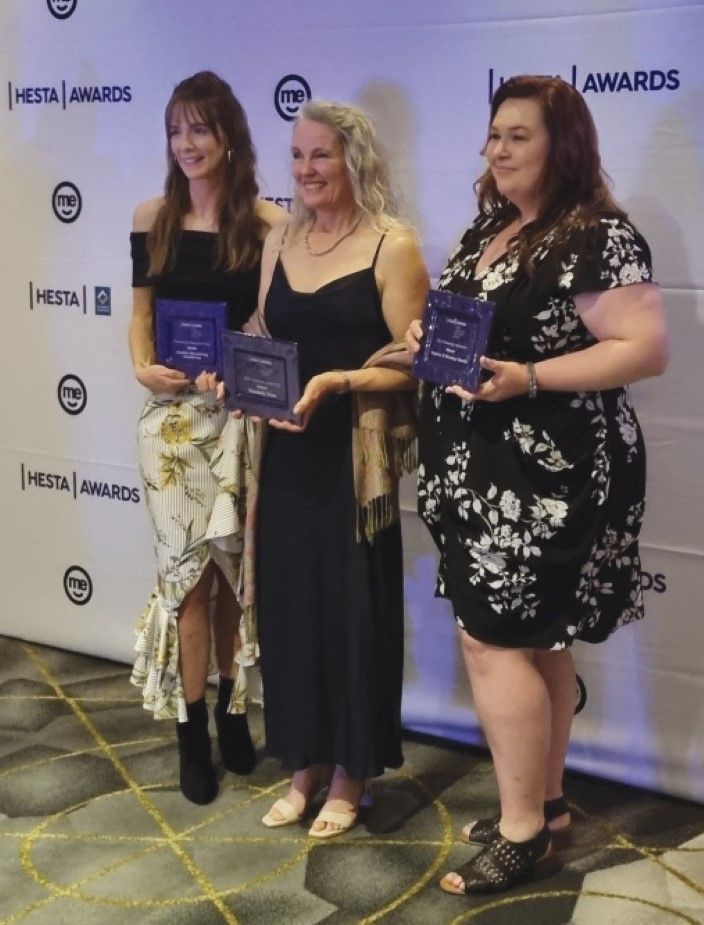
Elizabeth Price was thrilled to be named Individual Leadership Winner at the 2022 HESTA awards for her commitment to “challenge and inspire children through natural learning environments,” Sue Osborne writes.





































































































































Award winner draws on nature’s calming qualities
2023 March Bedrock


Elizabeth Price was thrilled to be named Individual Leadership Winner at the 2022 HESTA awards for her commitment to “challenge and inspire children through natural learning environments,” Sue Osborne writes.

The experienced director and long-time IEU member at Gloucester Preschool and Early Years Learning Centre in NSW, said she only nominated because a colleague encouraged her, and never expected to win.

At the awards ceremony in October, HESTA CEO Debby Blakey said the winners and finalists had a significant impact on young Australians.

“Our early childhood educators and carers are critical members of our communities. It all starts with them; they’re laying the foundations of education for our future generations. Congratulations to all our winners and finalists for their incredible contributions.”

Elizabeth has been a director for 30 years, initially working in services on Sydney’s north shore, eventually becoming a regional consultant for KU, covering 15 services.
She appreciates the more intimate relationship she gained with her community when she returned to directorship 10 years ago at Gloucester Preschool, which serves a low socio-economic area.
“I understand this community and the staff who work here well. When I go to regional meetings, I try to inspire other directors and work with them collaboratively,” she said.
Competitiveness between early childhood centres in a for-profit environment was not beneficial to children’s education, she said.
Elizabeth has always been passionate about the environment and feels it’s an important part of a teachers’ role to advocate for children to have opportunities to connect with nature. Many new centres are being built in small spaces, with no connection to nature, to maximise the number of children that can be served, she said.
A “serious conversation” needs to be undertaken by government and society about the future of early childhood education.
While business and CEOs were reaping large profits from the sector, despite rising fees for parents and stubbornly low pay for educators and teachers, the needs of children were being put on the backburner, she said.
Need for expansion
Elizabeth is passionate about maintaining a traditional preschool service in Gloucester, but she said parents were “crying out” for long day care service.
“In light of the National Quality Framework [NQF], which demands that we listen to the needs of the community and respond, a decision was made to expand our long day care services.”
The service purchased a house adjacent to the preschool, and Elizabeth saw an opportunity to create a natural outdoor learning environment with the extra land.
She encouraged the children to talk about what they liked in their current playground, how they liked to play at the park, or when they were out in nature.
Staff and parents also contributed ideas and they observed how the children played in their previous playground.
Elizabeth hand drew plans for the playground, which she shared with all stakeholders, including the children, for further feedback.
“Not hiring a professional designer allowed us to have more ownership. My hand drawings made it a more intimate process.”
They also used a builder who had never constructed a playground before.
Keeping the essence
“This gave me more control, we didn’t lose the essence of of our concept during the building process.”
Elizabeth said she avoided too many large open spaces, rather creating areas where children could climb, swing and balance in a supported risky play environment. The children can continually redesign the space to provide new creative spatial leaning opportunities. No plastics or single use play equipment were used in the construction.
“We found large open spaces to be disruptive to the quieter children in our previous playground. I wanted to create some small learning areas where they could explore with nature with long periods of uninterrupted play.
“This is only anecdotal, but we feel we have less aggressive and disruptive behaviour since the natural outdoor learning environment has been opened. The children engage in more social play and use up their energy climbing or swinging.
“Being in touch with nature calms children down and they are more engaged, with less disruptive tendencies.”
Gloucester Preschool was also awarded the 2018 Kidsafe National Playspace Design Award for its playground.
Elizabeth said as well as the connection with nature, the HESTA Award acknowledged the intrinsic link the preschool has with its community.
“When the NQF came in and it said we needed to work on connection more with community, many of us said ‘aren’t we doing enough already?’. But now I understand what it really means to be part of the community.
“It’s an everyday thing, not tokenistic add-on.”
The future looks just as busy as the past for Elizabeth. The service has bought another neighbouring property to expand even further.
“I have many ideas about what will happen with that new space. I’m thinking about sustainability and growing our own food, but also intergenerational activities. We will see.”
Since 2010, the national HESTA Awards have recognised frontline educators and carers. The three winners each received $10,000, courtesy of ME Bank, for professional development or to improve services or processes in the workplace.
For more information, visit hestaawards.com.au